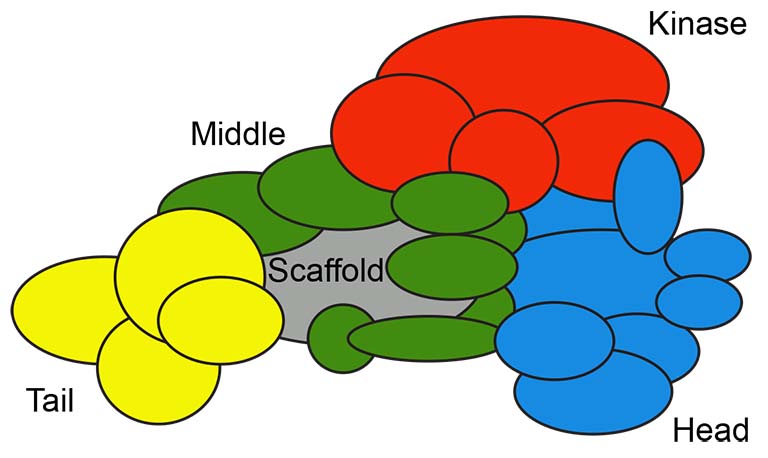In the microscopic world of cells, the critical role of Mediator in transcriptional regulation is underscored by the numerous human disorders linked to its dysregulation. Mediator is an essential multiprotein complex that functions as a transcriptional coactivator in eukaryotic cells.
Gabe Zentner, an assistant professor in the Department of Biology, is working to understand the complex involvement of Mediator in transcriptional regulation.
"In addition to being a critical component of the gene expression machinery of all eukaryotic cells, mutations in Mediator subunits and alterations in the expression of Mediator subunits are associated with human diseases including neurodevelopmental disorders and cancer," says Zentner. "The goal of our work is to gain insight into the basic functions of Mediator, which we hope to apply to disease contexts in which Mediator function is altered."
Earlier this year, Zentner was funded $1,968,750 for his grant application titled “Regulation of transcription by the Mediator complex” through a Maximizing Investigators' Research Award for Early Stage Investigators (R35). The MIRA, as the award is known, is presented by the National Institute of General Medical Sciences, a section of the National Institutes of Health. It provides support for an investigator's research that falls within the mission of NIGMS. The MIRA provides researchers with greater stability and flexibility which in turn enhances scientific productivity and the chances for important breakthroughs. The award is for five years.
His initial studies will be done on yeast cells and expanded into mammalian cells. In the long term, Zentner plans to model the effects of disease-associated Mediator mutations in human cells.


 The College of Arts
The College of Arts